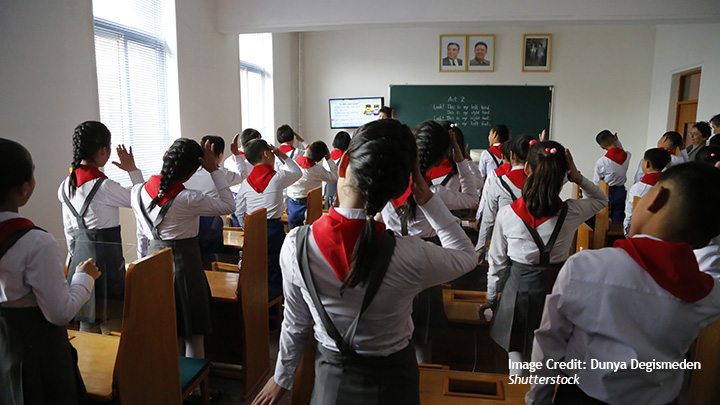
Education plays a crucial role in shaping the future of any nation. However, in North Korea, the education system faces significant challenges that hinder its ability to provide quality learning opportunities for its citizens. This article aims to shed light on the challenging situation in the education field in North Korea and explore the factors contributing to these difficulties.
One of the primary challenges in North Korea’s education system is the limited access to quality education. The government controls the curriculum and restricts information flow, resulting in a narrow focus on political ideology rather than fostering critical thinking skills. Moreover, resources and educational facilities are limited, particularly in rural areas, making it difficult for many students to receive a well-rounded education. The education system in North Korea heavily emphasizes ideological indoctrination. Students are taught to prioritize loyalty to the ruling regime and the country’s socialist principles. The curriculum revolves around the glorification of the state’s leaders, promoting an unquestioning devotion that limits independent thought. This one-sided approach restricts intellectual development and limits exposure to diverse perspectives.
North Korea faces a shortage of qualified teachers. The lack of teaching staff affects the quality of education as educators struggle to meet the demands of a high student-to-teacher ratio. Additionally, teacher training programs often fail to provide educators with modern pedagogical methods and up-to-date knowledge. As a result, teaching practices tend to be outdated, hindering effective student engagement and learning outcomes. Another challenge in North Korean education is the outdated infrastructure and lack of essential resources. Many schools lack proper sanitation facilities, libraries, and technology necessary for effective learning. The scarcity of textbooks and learning materials further hampers students’ access to relevant information. These limitations hamper the ability of students to acquire up-to-date knowledge, limiting their potential for growth and innovation.
Socioeconomic disparities pose a significant challenge to education in North Korea. Students from privileged backgrounds often have greater access to resources, including quality schools, private tutors, and extracurricular activities. Conversely, children from lower-income families face higher barriers to education due to financial constraints. This disparity perpetuates social inequality, limiting opportunities for less fortunate students to reach their full potential. North Korea’s highly controlled information environment poses a considerable challenge to education. The government tightly regulates internet access, limiting students’ exposure to global knowledge and advancements. The lack of access to diverse information inhibits critical thinking and hampers the development of skills necessary for innovation and adaptability.
The isolationist policies of North Korea limit opportunities for international collaboration and exchange programs. These initiatives provide valuable cross-cultural experiences and opportunities for students to broaden their horizons. The absence of such programs restricts the exposure of students to different perspectives and global educational standards, hindering their ability to compete on an international level.
The education system in North Korea faces numerous challenges that impede its ability to provide quality learning opportunities. Limited access to quality education, ideological indoctrination, teacher shortages, outdated infrastructure, socioeconomic disparities, restrictive information environment, and a lack of international collaboration all contribute to the existing difficulties. Addressing these challenges will require significant reforms, including improvements in resource allocation, teacher training, curriculum diversification, and fostering a more open and inclusive learning environment. Only through comprehensive changes can North Korea’s education system provide its citizens with the tools they need to thrive in a rapidly evolving world.
